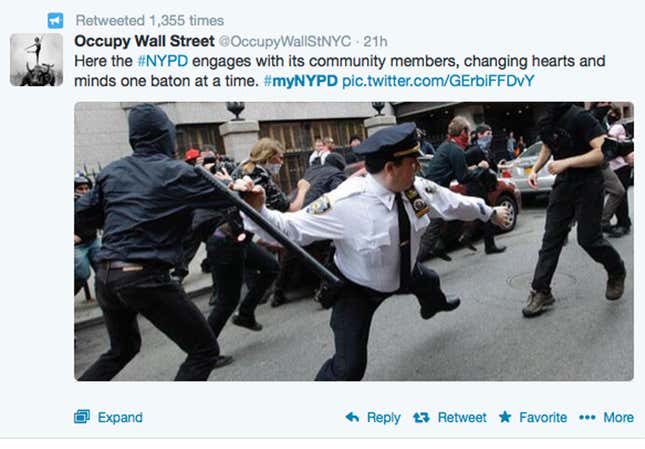It’s time to rethink armchair activism.
As large social movements from the Arab Spring to #BlackLivesMatter have shown, 21st-century activism is intimately tied to the internet. But does the activity carried out on social networks actually help make a difference?
A recent study published in the research journal PLOS ONE found that online engagement is key to turning a protest into a social movement and in prolonging its lifespan.
The study, led by Pablo Barberá of New York University’s Center for Data Science and Sandra González-Bailón at the University of Pennsylvania’s Annenberg School for Communication, analyzed Twitter activity related to the 2011 Occupy movement and the 2013 Gezi Park protests. It found that those who were not directly involved in the live protests, including those who retweeted just once, create virtual content ”at levels that are comparable to core participants.”

The researchers found that the power of this “slacktivism” lies in the large number of users who engaged with the causes online. The network effect created by this engagement made the actions of just a few active protesters visible to millions of people, all over the world.
By conducting a control analysis of online activity related to the diffuse debate over raising the minimum wage in the US, the researchers, who entitled their study “The Critical Periphery in Social Protests,” examined the role on-the-ground activists play in the success of movements online.
The symbiotic relationship these “active” activists have with their online supporters, a phenomenon the researchers term “core-periphery dynamics,” turns out to be instrumental for a movement to gain traction. Photo and video content created by people willing to sleep outside and hold up signs leads to lots of sharing, researchers found, which helps spread the message around.
This research builds on a 2012 study by researchers at Georgetown University, who found that those who support movements online are actually more likely to engage in activism in real life.
Combined, the findings of these studies suggest we have entered an age of increased activism, both on the ground and online.
